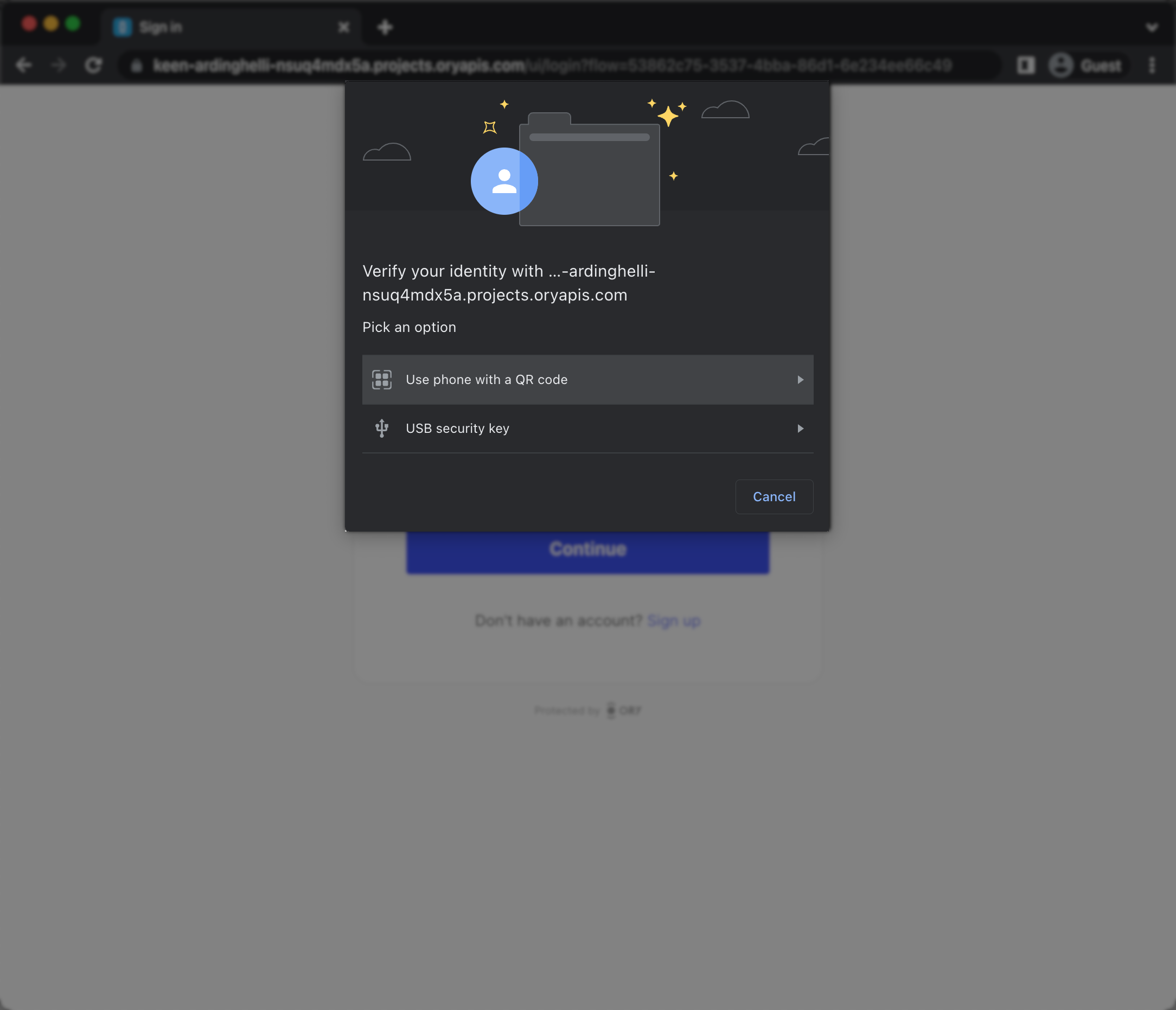WebAuthn
The Web Authentication Browser API (WebAuthn) is a specification written by W3C and FIDO. The WebAuthn API allows servers to register and authenticate users using public key cryptography instead of passwords.
WebAuthn is commonly used with:
- USB, NFC or Bluetooth Low Energy devices, for example YubiKey
- Built-in OS biometric authentication platforms such as TouchID, FaceID, Windows Hello, Android Biometric Authentication
When the end-user triggers the WebAuthn process, the browser shows WebAuthn prompt. The prompt looks different depending on the used browser. This is a Chrome example:

Ory's WebAuthn implementation can be used for both multi-factor authentication and passwordless authentication. You need to configure whether WebAuthn is used for passwordless, or for multi-factor authentication. Read more on Multi-factor with WebAuthn.
Configuration
By default, passwordless with WebAuthn is disabled. To start using WebAuthn, apply this configuration:
- Ory CLI
- Full Config
ory patch identity-config <your-project-id> \
--add '/selfservice/methods/webauthn/enabled=true' \
--add '/selfservice/methods/webauthn/config/passwordless=false' \
--add '/selfservice/methods/webauthn/config/rp/display_name="My Display Name"'
selfservice:
methods:
webauthn:
enabled: true
config:
# If set to true will use WebAuthn for passwordless flows intead of multi-factor authentication.
passwordless: false
rp:
# This MUST be your root domain (not a subdomain)
id: example.org
# This MUST be the exact URL of the page which will prompt for WebAuthn!
# Only the scheme (https / http), host (auth.example.org), and port (4455) are relevant. The
# path is irrelevant
origin: http://auth.example.org:4455
# A display name which will be shown to the user on her/his device.
display_name: Ory
Once passwordless is set to either true or false, avoid changing it. Doing so may lock some users out of their accounts.
(Custom) identity schema
All Ory identity schema presets are WebAuthn-ready.
If you want to use a custom identity schema, you must define which field of the identity schema is the primary identifier for WebAuthn.
This is used for WebAuthn both in passwordless flows and multi-factor authentication.
{
$schema: "http://json-schema.org/draft-07/schema#",
type: "object",
properties: {
traits: {
type: "object",
properties: {
email: {
type: "string",
format: "email",
title: "Your E-Mail",
minLength: 3,
"ory.sh/kratos": {
credentials: {
// ...
webauthn: {
identifier: true,
},
},
// ...
},
},
// ...
},
// ...
},
},
}
Constraints
- WebAuthn is a browser standard. It does not work in native mobile apps.
- WebAuthn is limited to one domain and does not work in a local environment when using CNAME / Ory Proxy. WebAuthn uses the
https://originURL as part of the client<->server challenge/response mechanism. This mechanism allows for only one URL as the origin. Read more in the WebAuthN guide and on GitHub. - Implementing WebAuthn in your own UI can be challenging, depending on which framework to use. Check our reference implementations: React Native, Node.js, React/SPA